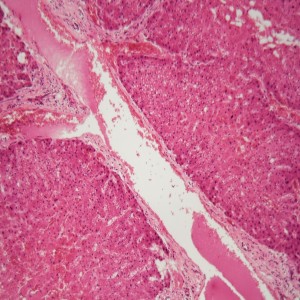
Advances in the amyloidosis space: Prognostic factors, CAEL-101 immunotherapy and real-world data
 2021-02-05
2021-02-05
Amyloidosis is the name attributed to a group of diseases caused by the extracellular accumulation of amyloid, an abnormal, insoluble protein. Amyloid forms when protein misfolding transforms soluble precursor proteins into insoluble amyloid fibrils. Amyloid fibrils can disseminate systemically and deposition on organs causes disturbance of organ function. Deposition in cardiac tissue, kidneys and the central nervous system are the primary causes of patient deterioration. There are four main types of amyloidosis: AL (light chain), AA (inflammation), ATTR (hereditary and old age) and AB2M (caused by dialysis). AL amyloidosis is the most common type and is caused by clonal plasma cell dyscrasia. Treatment strategies depend on the type of amyloidosis. Recent treatment developments include novel chemotherapy agents and immunotherapies with monoclonal antibody therapies in particular showing promise.
In this podcast, Morie Gertz, MD, MACP, of the Mayo Clinic College of Medicine, Rochester, MN, Jason Valent, MD, from the Taussig Cancer Institute, Cleveland Clinic, Cleveland, OH, and Efstathios Kastritis, MD, of the University of Athens School of Medicine, Athens, Greece, discuss updates in the amyloidosis field presented at this year’s virtual American Society of Hematology (ASH) Annual Meeting and Exposition.
More Episodes
 2021-09-08
2021-09-08
 249
249
 2021-09-03
2021-09-03
 248
248
 2021-09-01
2021-09-01
 215
215
 2021-08-27
2021-08-27
 243
243
 2021-08-25
2021-08-25
 238
238
 2021-08-19
2021-08-19
 222
222
 2021-08-18
2021-08-18
 204
204
 2021-08-17
2021-08-17
 202
202
 2021-08-16
2021-08-16
 187
187
 2021-08-06
2021-08-06
 218
218
 2021-08-04
2021-08-04
 198
198
 2021-08-02
2021-08-02
 222
222
 2021-07-30
2021-07-30
 224
224
 2021-07-27
2021-07-27
 274
274
 2021-07-26
2021-07-26
 189
189
 2021-07-23
2021-07-23
 182
182
 2021-07-21
2021-07-21
 217
217
 2021-07-20
2021-07-20
 196
196
 2021-07-16
2021-07-16
 243
243
 2021-07-08
2021-07-08
 220
220
Create your
podcast in
minutes
- Full-featured podcast site
- Unlimited storage and bandwidth
- Comprehensive podcast stats
- Distribute to Apple Podcasts, Spotify, and more
- Make money with your podcast
It is Free
- Privacy Policy
- Cookie Policy
- Terms of Use
- Consent Preferences
- Copyright © 2015-2024 Podbean.com




